3 x Refill trends challenging throwaway culture
Single-use is a dirty word. In today’s ‘woke’ society, consumers are turning away from brands that aren’t actively responding to the environmental issues we’re facing on a global scale.
A report by Zero Waste Week found that the beauty industry produces a staggering 142 billion pieces of packaging each year. With the jury out on how much actually gets recycled, could this mark the end of the ‘shelfie’? Once the cosmetics industry status symbol, these photos showing an embarrassment of ‘must-have’ products have come to symbolise where the industry went wrong.
This isn’t new news – sustainability has been on the agenda for decades. But with today’s culture of shame, we’re only now seeing major brands and corporations make real commitments.
Unilever previously announced it would look to sell off brands such as Marmite and Magnum that harm the planet through production or negatively impact society, regardless of whether they are profitable.
This month Scotch heavyweight Johnnie Walker switched to paper bottles, while DTC personal care brand Native unveiled a paper-based deodorant applicator, committing to ridding plastic from all its packages by 2023, following a 900% increase in consumer requests for plastic-free.
While we see shifts from plastic to paper, there is still the need for recycling – and there are concerns around supposedly recyclable products still ending up in landfill, taking up to a thousand years to decompose.
But what if we removed the need to recycle completely? We look at three areas where brands are embracing refill culture.
1. Drive-thru replenishment
BrewDog has revealed plans to open the UK's first beer "drive-thru". The brewery teased its plans on Twitter, revealing them to be part of BrewDog’s commitment to sustainability.
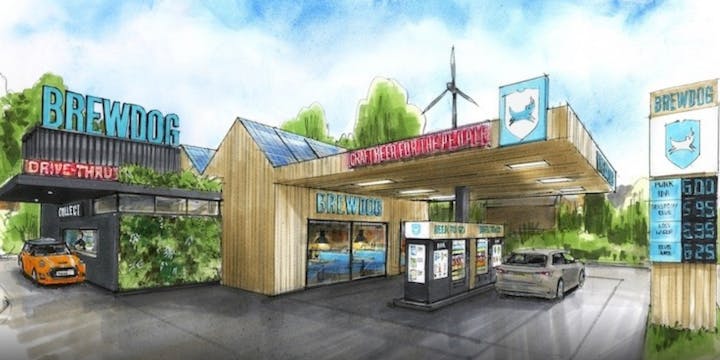
Image Credit: Brewdog Twitter
In another tweet, the company shared: “We are looking to open in the UK, in Columbus Ohio, in Berlin, Germany & in Brisbane Australia as we look to find ways to deliver cold, fresh craft beer direct to our customers in a way that is better for the planet.”
BrewDog also hopes to become “the world’s most sustainable drinks company” with all electricity used to make its beers coming from wind turbines near the brewery in Ellon, Aberdeenshire from this month.
2. Subscription and scheduled refills
Loop is widely regarded as a glimpse into the future by many in the FMCG industry. A scheme by Terracycle (one of the world’s most innovative recycling companies), it offers a refill service for their partnered brands’ products.
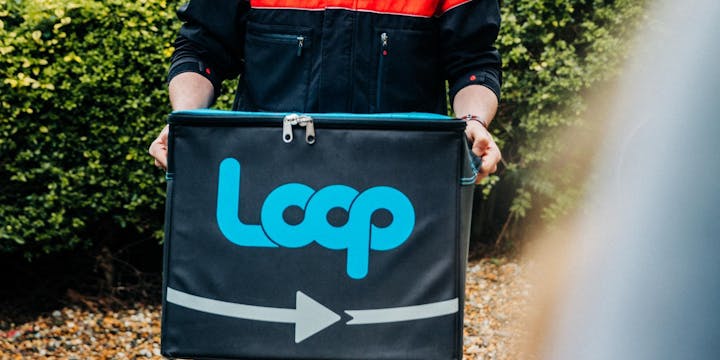
Image Credit: Loop
They make it easy: you choose your products, they arrive in refillable containers and then your empties are picked up and dropped back when they’ve been thoroughly cleaned and are ready to reuse.
This month, Loop launched in the UK in partnership with Tesco, working with names like Heinz, Coca-Cola and Ren Skincare.
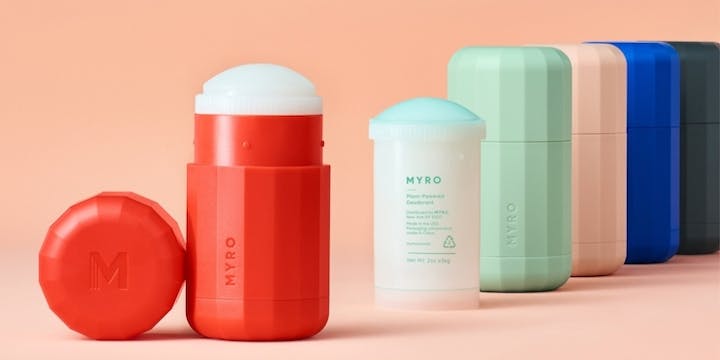
Image Credit: Myro
Meanwhile, there are a growing number of DTC subscription-based cosmetics brands on the market, such as Myro and Wild. Both these brands are on a mission to shake up throwaway culture with refillable deodorants.
3. Luxury Refills
When it comes to luxury, there’s an expectation that packaging needs to be functional but also feel luxurious in weight, texture and tone. As a result, sustainability is often an afterthought.
Brands like Louis Vuitton are seeking long-lasting luxury – you don’t buy Louis Vuitton products for their disposability. You buy a trunk or a handbag and now, even a perfume, that’s built to last.
In keeping with the theme of long-lasting items, the maison’s refill initiative lets you turn an ordinary perfume bottle into an heirloom. Instead of throwing the glass flacon out once you’ve used up the fragrance, you can now have it refilled.
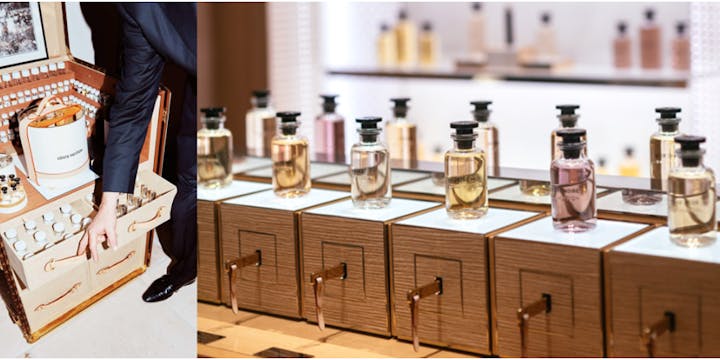
Image: Louis Vuitton
All you need to do is take your empty bottle to your nearest Louis Vuitton boutique, where it will be refilled using a set of tools that ensure the bottle isn’t opened. The fragrance is never exposed to air and not a drop is compromised.
Meanwhile, Giorgio Armani’s new scent, launching next month, marks a turning point in the brand’s commitment to sustainability. ‘My Way’ is housed in a refillable bottle and is said to be carbon neutral.
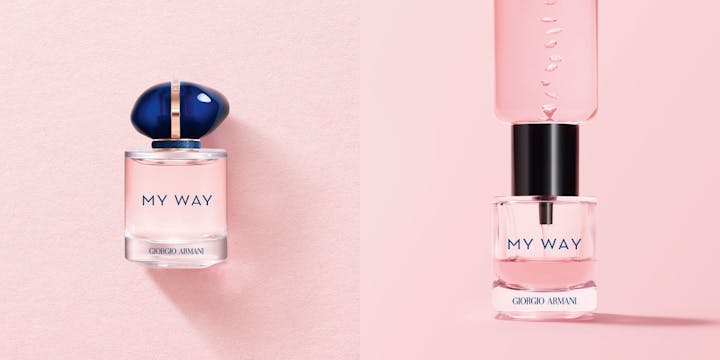
Image Credit: Georgio Armani
“I believe that environmental issues should be close to everyone’s heart, now more than ever. There is no way we can ignore the fact that the future of the younger generations depends on our choices,” Armani said.
Sustainability has never looked so stylish. If your brand is seeking ways into refill culture, or a ‘fragrance fountain’ pop-up sounds like your thing, get in touch at hello@lovecreative.com.
SEEN is compiled by LOVE’s Head of Culture, Kat Towers. Want to say hello, ask questions or challenge her cultural knowledge? Get in touch - kattowers@lovecreative.com